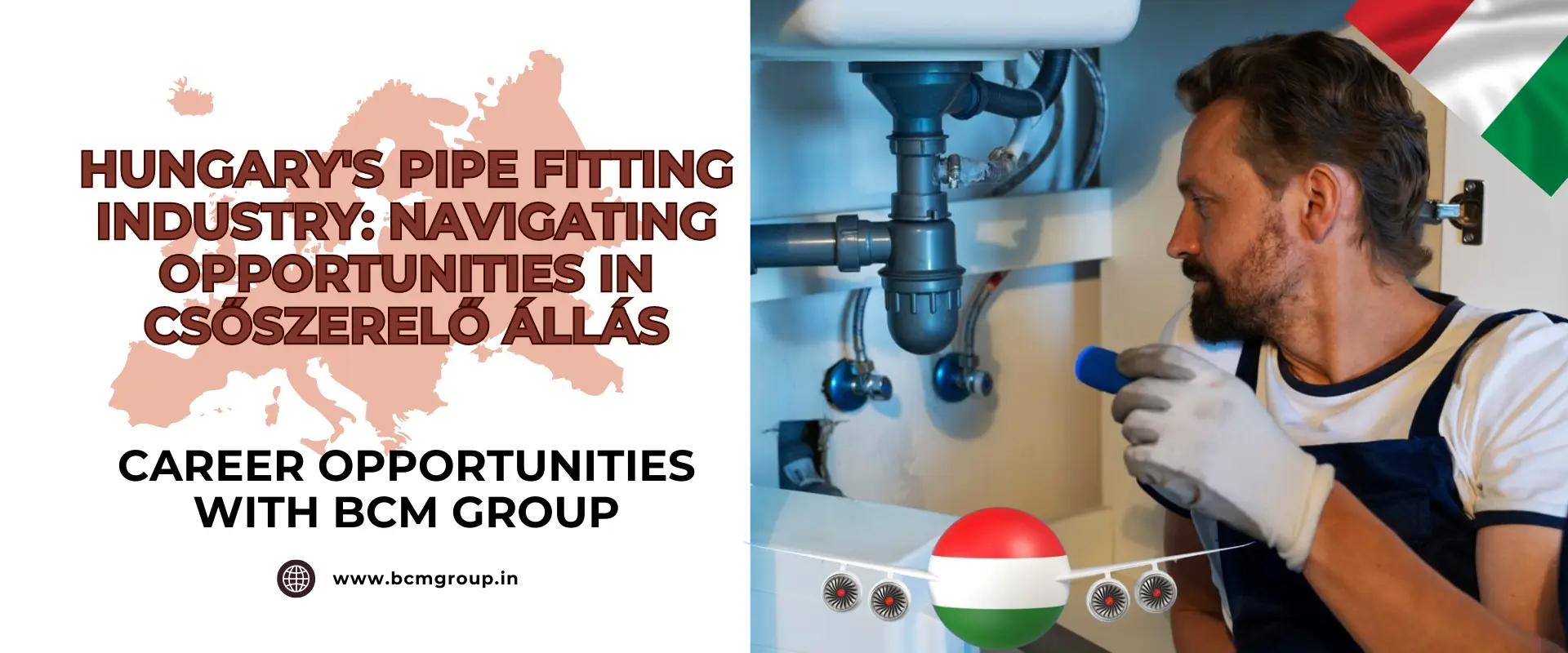
Pipefitters [csőszerelő Allás] in Hungary earn an average of HUF 6,985,744 per year and HUF 3,359 per hour. The typical wage range for a Pipefitters [csőszerelő Allás] is HUF 4,980,836 to HUF 8,431,793. This compensation analysis is based on salary survey data obtained directly from employers and anonymous employees in Hungary.
In the heart of Central Europe lies Hungary, a country with a vibrant pipe fitting [Csőszerelő Állás] industry that plays a pivotal role in sectors like construction, manufacturing, and energy. This article aims to explore the intricacies of pipe fitting jobs (Csőszerelő Állás) in Hungary, shedding light on the market dynamics and essential skills required pipe fittier jobs (Csőszerelő Állás) for success.
Pipe fitting [csőszerelő Allás] is a crucial profession responsible for the installation, maintenance, and repair of piping systems. These systems are the lifelines of various industries, facilitating the seamless transport of fluids, gases, and materials essential for everyday operations. Pipe fitters [csőszerelő Allás ] are the unsung heroes behind these systems, ensuring they function efficiently and reliably.
To enter the pipe fitting industry [csőszerelő állás] in Hungary, individuals typically require formal qualifications. Vocational training in pipe fitting [csőszerelő állás] or related trades serves as the preferred pathway into this profession. Additionally, technical skills such as blueprint reading, tool usage, and sometimes welding are essential. Physical abilities like strength, stamina, and hand-eye coordination are also crucial, along with soft skills like problem-solving and effective communication.
Hungary's pipe fitting job [csőszerelő állás] market is influenced by several factors. The country's investments in infrastructure projects, manufacturing growth, and EU regulations on environmental standards drive the demand for skilled pipe fitters. However, challenges such as an aging workforce, lack of training programs, and international competition pose significant obstacles to industry growth.
BCM Group Recruitment Services specializes in sourcing skilled pipe fitters for a range of industries in Hungary. Whether you’re in need of qualified pipe fitters, we possess the expertise to match you with the perfect talent. Our dedication to excellence guarantees access to top-tier professionals tailored to your precise requirements. We facilitate the recruitment of experienced and proficient workers. Explore our services by visiting our homepage and completing the necessary details. Alternatively, reach out to us via phone or email, and our team will promptly assist you in meeting your recruitment needs.
With experience and additional training, pipe fitters [csőszerelő Allás] can advance their careers and specialize in areas like welding or industrial piping. Career advancement opportunities exist in supervisory roles, where individuals oversee projects and teams, ensuring the efficient completion of tasks.
Navigating Hungary’s pipe fitting job [csőszerelő Allás] market requires prospective professionals to equip themselves with the right blend of qualifications, skills, and adaptability. Addressing challenges like workforce shortages and international competition is crucial for sustaining industry growth and ensuring a steady supply of skilled pipe fitters.
Vocational training in pipe fitting or related trades is typically required, along with technical skills and physical abilities.
Yes, with additional training and experience, pipe fitters can advance to supervisory roles or specialize in specific areas like welding or industrial piping.
Challenges include workforce shortages, an aging workforce, lack of training programs, and competition from other EU countries with lower wage standards.
Working conditions can be physically demanding, often involving challenging environments. However, wages typically exceed the national average.
To stay competitive, focus on acquiring relevant qualifications, honing technical and soft skills, and staying updated on industry trends and regulations.
KÖZPONT
409, 4. emelet, Amanora Chambers, Amanora Mall, Magarpatta City közelében, Hadapsar, Pune – 411028,
BCM Group Global Manpower SRL, Romania
Álláskeresőknek
Cégek számára
Cégek számára

alatt regisztrálva Ministry of External Affairs
License No. MUMBAI/PARTNERSHIP/5493853/2021
© 2024–2025 bcmgroup.Minden jog fenntartva.
Ez az oldal reCAPTCHA védelem alatt áll, és a Google adatvédelmi irányelvei, valamint a szolgáltatási feltételek vonatkoznak rá.